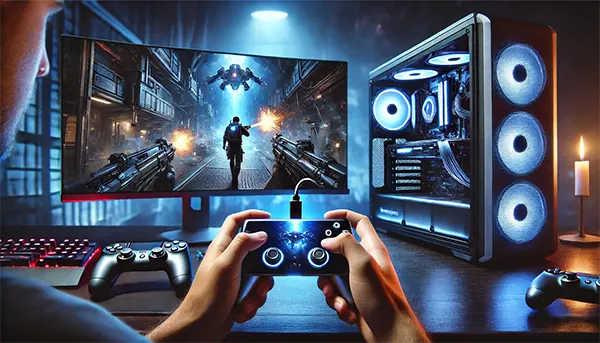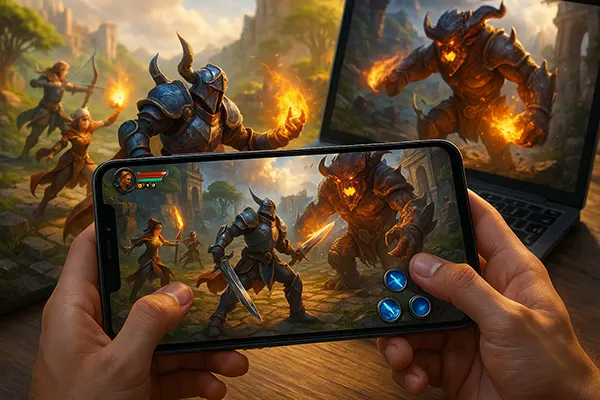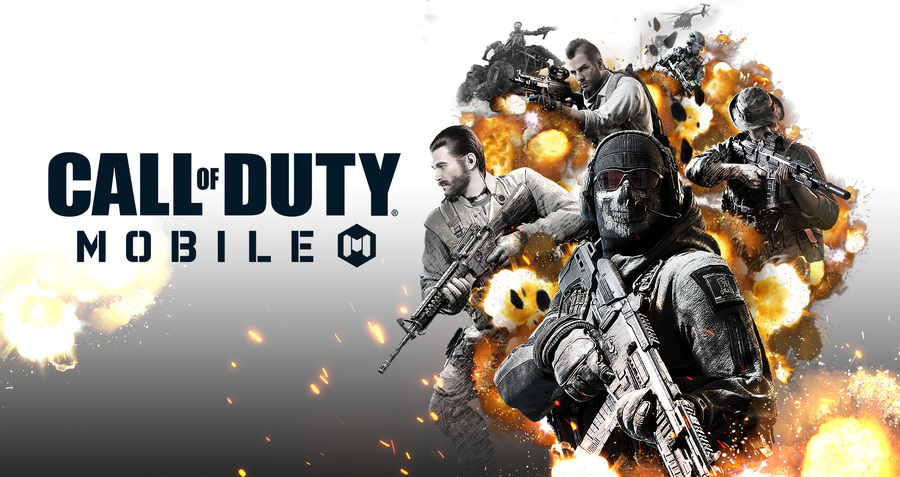
Cloud Gaming in 2025: Can You Finally Ditch a High-End Smartphone?
Cloud gaming has been evolving rapidly, offering a promising alternative to traditional mobile gaming that relies on powerful hardware. In 2025, leading cloud gaming services like Google Stadia 2.0, GeForce Now Mobile, and Xbox Cloud Gaming have reached new levels of efficiency. But can users now rely solely on cloud gaming without needing a high-end smartphone? Let’s explore the current landscape and its implications.
The State of Cloud Gaming in 2025
Over the past few years, cloud gaming has significantly improved, with reduced latency, better streaming quality, and broader device compatibility. Major tech companies have invested heavily in cloud infrastructure, enabling smoother gameplay experiences. In 2025, services like Google Stadia 2.0 have addressed many of the issues that plagued its predecessor, including lag and limited game availability.
GeForce Now Mobile has expanded its library, allowing gamers to play a vast selection of AAA titles on smartphones, tablets, and even low-end devices. Similarly, Xbox Cloud Gaming has enhanced its ecosystem by integrating cloud play with the Game Pass subscription model, offering an extensive catalogue of games without requiring local storage.
As internet speeds improve globally, 5G networks and fibre-optic broadband have played a crucial role in eliminating the reliance on expensive gaming hardware. However, despite these advancements, cloud gaming still faces some challenges.
Do You Still Need High-End Hardware?
One of the main attractions of cloud gaming is the ability to run demanding games on devices that would otherwise be incapable of handling them. Services now offer ultra-low latency modes and 4K streaming, making gameplay almost indistinguishable from local rendering. However, the experience heavily depends on the quality of the internet connection.
While flagship smartphones provide better displays, refresh rates, and faster connectivity, even mid-range devices in 2025 are equipped with powerful network chips, making them suitable for cloud gaming. This means that players no longer need the latest hardware to enjoy a premium gaming experience.
Nevertheless, some high-end smartphones still offer advantages, such as enhanced thermal management and more reliable connectivity. While cloud gaming eliminates the need for powerful processors and GPUs, the best experience is often achieved on devices with stable internet and minimal latency.
Which Games Perform Best on Cloud Gaming?
Not all games are equally suited for cloud gaming. Turn-based strategy games, single-player RPGs, and slower-paced adventure games perform exceptionally well. These genres are less affected by minor latency issues, making them ideal candidates for streaming.
Action-packed FPS and battle royale games, such as Call of Duty: Warzone or Fortnite, require fast reaction times. While cloud gaming services have improved latency reduction, competitive players may still notice slight input lag. In contrast, racing games, like Forza Horizon 5, benefit from cloud gaming’s real-time rendering capabilities and dynamic weather effects.
Cloud gaming services in 2025 have also optimised performance for VR and AR applications. While still in early stages, advancements in streaming technology have allowed virtual experiences to become more immersive without the need for high-end local processing power.
Comparing the Best Cloud Gaming Services
Google Stadia 2.0 has improved significantly compared to its predecessor. With upgraded servers and a more extensive game library, it now supports 120 FPS gaming with HDR, making it a top choice for many players. Additionally, Google’s integration with YouTube allows seamless gameplay sharing.
GeForce Now Mobile remains a strong contender, with a pay-as-you-go model and access to Steam and Epic Games libraries. NVIDIA’s AI-driven upscaling technology further enhances game visuals, making it a preferred choice for PC gamers who want flexibility.
Xbox Cloud Gaming continues to attract users with its integration into Game Pass Ultimate. The ability to switch seamlessly between Xbox consoles and mobile devices makes it a convenient option for players who want access to a large variety of games.

Is Cloud Gaming the Future of Mobile Gaming?
With continuous improvements in internet infrastructure, cloud gaming is becoming a viable option for mainstream gamers. The need for powerful smartphones is diminishing as more services offer high-quality streaming with minimal hardware demands.
Despite its growth, cloud gaming still faces hurdles, such as regional internet disparities and data consumption concerns. Many players in rural areas or regions with slower broadband speeds may struggle with consistent performance, making local gaming more appealing.
As technology continues to advance, hybrid gaming solutions that combine local and cloud processing may emerge as the ultimate solution. This could allow players to enjoy cloud gaming benefits while retaining offline capabilities for uninterrupted play.
Final Thoughts
Cloud gaming in 2025 has come a long way, reducing the necessity for high-end smartphones. While premium devices still offer some advantages, even budget-friendly models can now handle cloud gaming efficiently. As long as users have a stable and fast internet connection, the gaming experience can be nearly indistinguishable from traditional hardware-based gaming.
The shift towards cloud gaming is reshaping the industry, making gaming more accessible than ever before. Whether players fully embrace cloud-based gaming or continue using powerful smartphones, the future of mobile gaming is evolving towards a more flexible and inclusive ecosystem.



